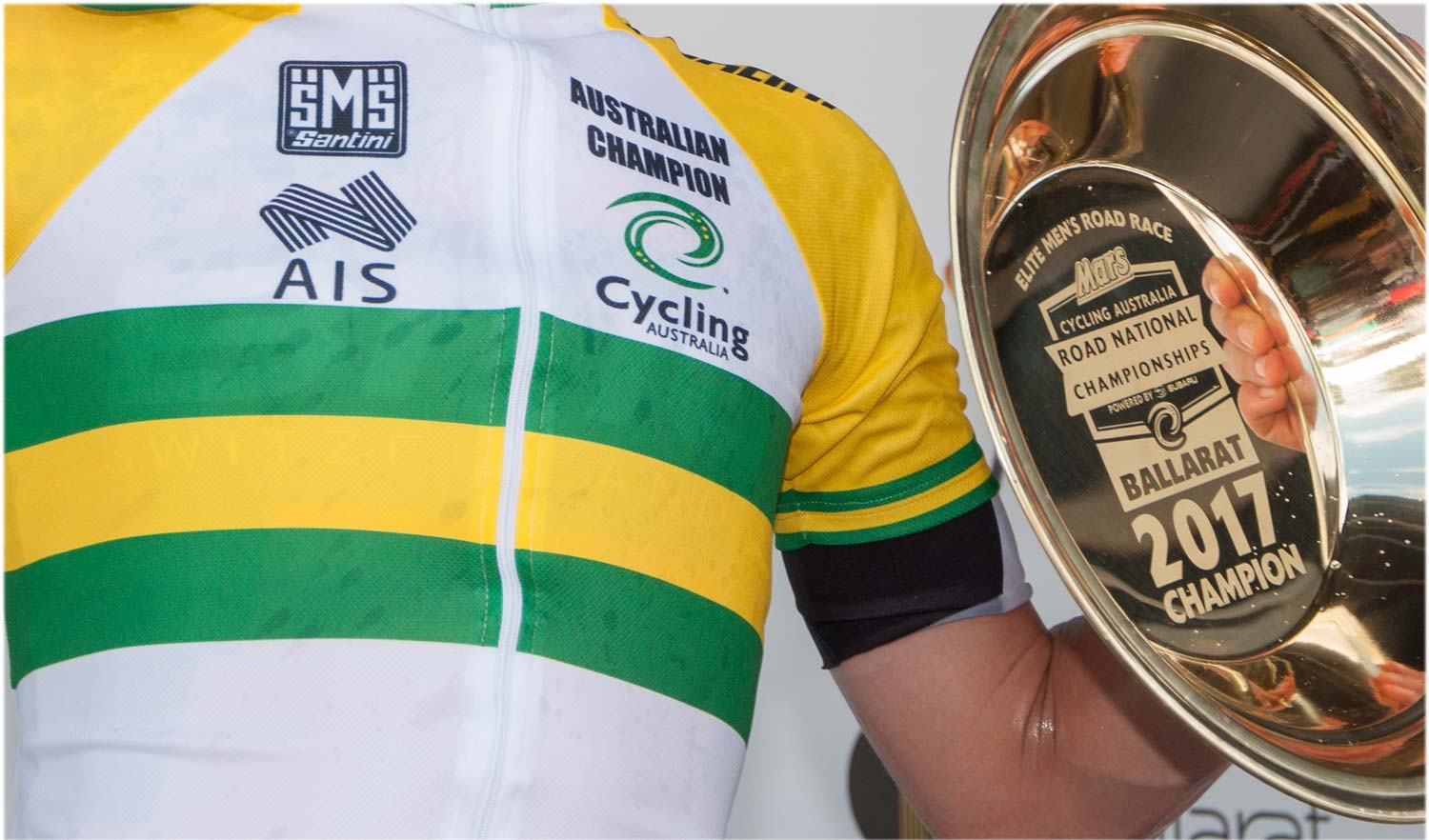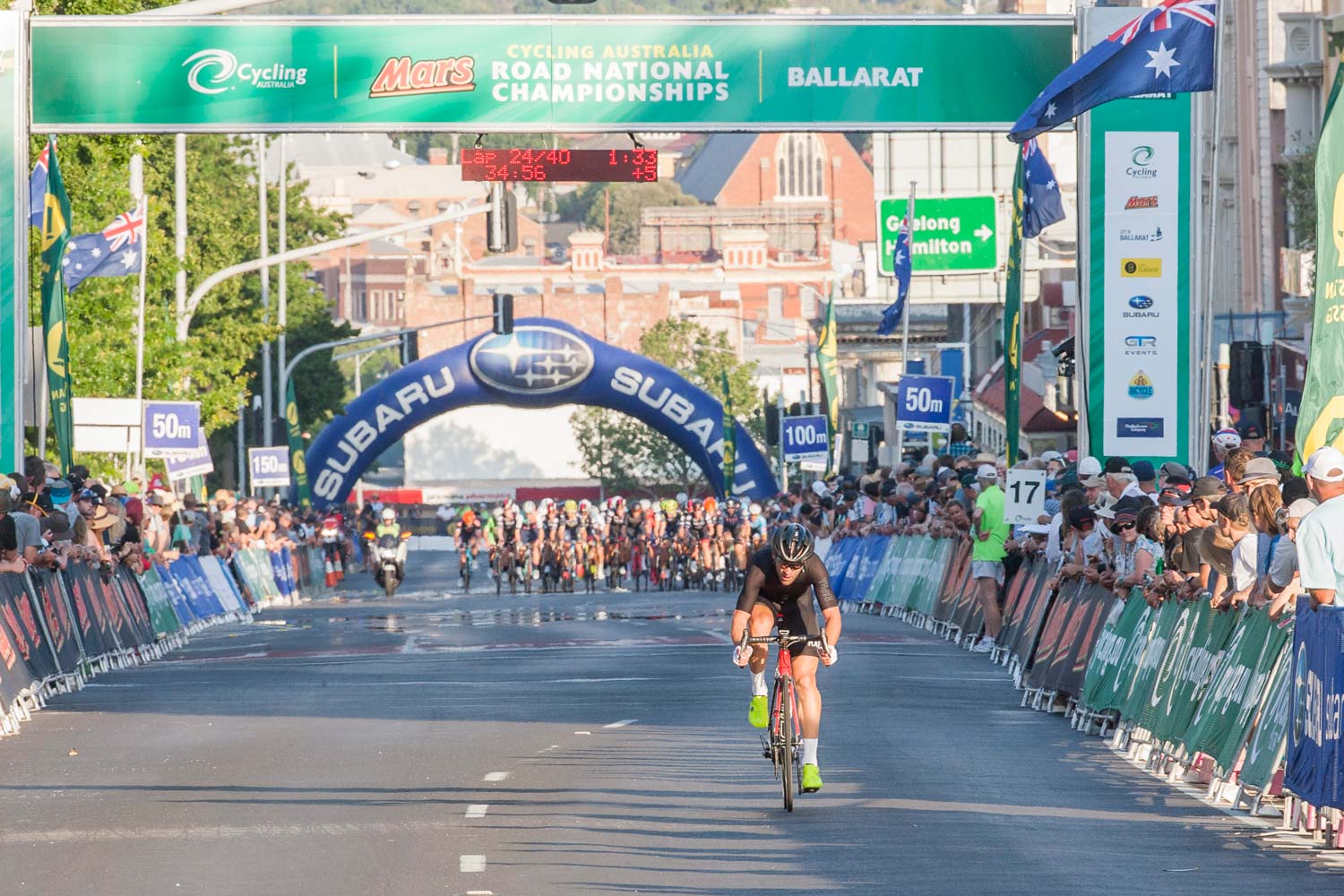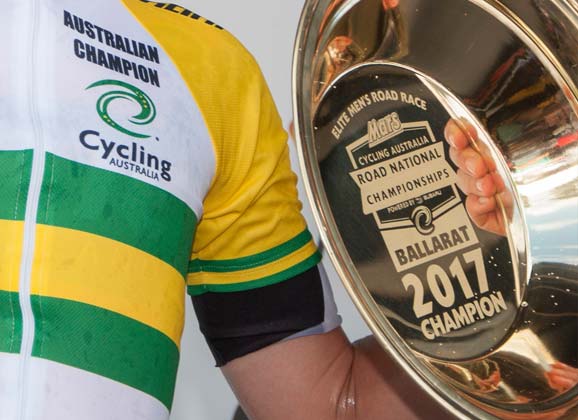It’s been 80 days since we published an Open Letter to Cycling Australia which concluded: “Yours in frustration…” Numerous points were raised and, going by the reaction we received, it was obvious that much of the sentiment resonated with others in the Australian cycling community.
Many have asked: what was CA’s reaction?
Beyond a few calls there has been minimal communication.
Below is a summary of some formal responses…

Starting a discussion, not a “smear campaign”
There was a swift and strong response to the ‘Open Letter’ to Cycling Australia. Many readers quickly chimed in with their own take on the efforts of the federation’s management and rarely was the appraisal positive.
The letter was published on a Friday afternoon and, by the end of the following weekend, it had been shared over 50 times on Facebook and ‘liked’ by over 400 readers.
Commentary was forthcoming from many but it took until the following Tuesday before any contact from anyone at Cycling Australia was made.
The letter had, of course, been sent to the president of the federation, Malcolm Speed.
When a call was eventually made, it was by the CEO himself. He was far from impressed, stating in a voicemail:
“Rob, it’s Nick Green from Cycling Australia…
“It feels like you’re starting a smear campaign against our organisation and myself, so could you call me please?”
As requested, I called and had a discussion with Green. It was amicable but he reiterated his take: that I was starting a “smear campaign”; while I reiterated my point, that I was starting a conversation that many stakeholders actually wanted.
* * * * *
At 8.20pm on the Tuesday evening, Speed sent an email stating:
Dear Rob,
There is a CA Board meeting on Thursday.
I have added your letter to the agenda under general business.
I will respond to you after the Board meeting.
Regards,
The following Monday afternoon, another email from Speed was received:
Dear Rob,
The CA Board discussed your Open Letter to CA as an item of general business at last week’s Board meeting.
The Board resolved to give the matters raised by you due consideration.
Yours sincerely,
Malcolm
I’ve heard nothing about the discussions with the board since that email.
* * * * *
An introduction for the CEO
The tone of the Open Letter was far from what might be part of a “smear campaign” and of all the public commentary offered, none was critical of what was published on 21 October 2016.
When I did speak with Green, we agreed to disagree on a number of points but the tone of the discussion was civil, if a little heated at times. He got to voice his opinion, I reiterated mine, and eventually we moved on. Before hanging up, however, Green did reference another article published on RIDE Media on the Monday – an interview with one of the biggest benefactors to cycling in Australia, Michael Drapac.
“You have pointed out something interesting,” he told me. “I never have made contact with Michael Drapac… are you able to pass on his details so I could give him a call?”
An email introduction was duly arranged and the following morning, Green emailed Drapac and suggested that they should meet. Michael Drapac has subsequently told me that no reply was sent.
* * * * *
The Olympic agenda continues
I’ve spoken to others who attended the CA board meeting at the end of October and have been advised that the Open Letter was indeed discussed. Apparently everyone agreed that the points raised were salient and worthy of further consideration.
There has been no further communication on the matter.
The morning after the board meeting a press release was issued relating to the position of the High Performance Manager at Cycling Australia. Recruitment, it stated, would be managed by an agency called SRi. The associated PDF document outlining the position boasted of a budget of “circa $10 million” per year and a staff of “40-45”.
And the sentiment is that Cycling Australia would continue to pursue Olympic gold medals at all cost. It would be “unapologetic” about its desire to win on the international stage.
Never mind the grassroots or the fact that, since Green took over the helm, the main agenda has been to minimise costs and bring the budget back to health. One Olympiad is over, it’s time to prepare for the next. Gold, gold, gold and more gold! That’s what the government wants, it’s what the ASC wants, and it’s what CA wants from its HPU manager.
Don’t we ever learn?
Note: the explanation on YouTube (above) just paraphrases a small portion of the reasons for the Open Letter… read the original post to understand what my other gripes are.
* * * * *
An interview with Nick Green
Two weekends after my Open Letter was published online, Nick Green accepted an offer to appear on the final episode of the Full Cycle program, hosted by Scott McGrory.
Three Olympic gold medallists on a lounge, talking cycling administration; one rower and two cyclists, all of them retired from elite competition but still heavily involved with sport.
If you’ve got 10.53, watch it and gauge for yourself how much is in reaction to criticism directed at Cycling Australia. Are any questions really answered? Is there really a future, for example, for the NRS which is singled out as a point of discussion?
* * * * *
The spokesmen: CEO and president
Many emails have been sent and some interesting contact made. There has been correspondence from more than one Olympic gold medallist and a host of other administrators past and present have offered their appraisal of the situation. Many ask that they remain off-the-record for the reaction may have ramifications…
One member of the CA board was enthusiastic about offering some suggestions about moving forward in the current climate and developing cycling from the grassroots up, but he was advised not to speak on the record as communication about Cycling Australia should “only be managed by either Nick Green or Malcolm Speed”.
It has been known for some time that Speed’s tenure as president of Cycling Australia is over – although there has been no formal communication on the matter, at least not from CA’s PR channels. Therefore it is not surprising that no news has been forthcoming about who his replacement is.
As one correspondent with a long history of sporting administration eloquently put it at the end of October: “I am at a point where I am starting to question the whole model. Are federations still relevant?”
* * * * *
Attempted communication with ASC
As we recognise, much of the spending remit imposed on Cycling Australia comes from the Australian Sports Commission (ASC) which is behind the so-called ‘Winning Edge’ policy – ie. the investment in National Sporting Organisations has a strong focus on success at the Olympic Games.
With this in mind, I’ve reached out to the ASC’s acting CEO, Matt Favier, and asked for an interview.
On the day the Open Letter was published, I sent the following email:
I publish a magazine called RIDE Cycling Review. I would be most interested to know what the ASC’s aims are in this post-Rio climate.
Recently I published an Open Letter to Cycling Australia:
https://www.ridemedia.com.au/features/an-open-letter-to-cycling-australia/
This offers some context of where I fit in, but there’s a wealth of other matters that could be discussed if you could find some time.
I look forward to hearing from you.
On 25 October, I received the following reply:
Thanks for the note. I have now had the chance to read your column.
Given the nature and tone of your article, might I ask what you are seeking from an interview with the ASC?
I duly responded…:
The purpose is to seek balance, perspective, understanding of past habits and hopefully an understanding of how the ASC is going to operate moving forward.
As the Open Letter states: to open up discussion.
Hopefully you agree that this is a noble and realistic objective of media.
The tone is nothing for anyone to be concerned with in my appraisal…
Which elicited the following reply from Favier (the last time I’ve heard from the acting CEO despite several follow-up calls and emails):
Let me see if we can land a date / time
I will continue to seek comment from the ASC and will report if correspondence is forthcoming.
* * * * *
The fall-out: don’t expect much to change
This is not a smear campaign. It began, as the Open Letter stated in the opening paragraphs, “to open a discussion on a topic that myself and many others in our community are passionate about”.
The reaction tells me that I’m not alone in my frustration of the current administration.
The antics that have been on display since it was published suggest that there’s little regard for commentary that strays beyond Cycling Australia’s own agenda. And, frankly, it’s yet another reminder that only a tiny percentage of the membership of Cycling Australia are getting what they expect from their national sporting organisation.
It’s a shame, but don’t expect this to change any time soon.
* * * * *

Follow-up… some early public reactions
Meanwhile, shortly after the Open Letter was published, people were offering their feedback on Facebook. Some of it constructive, some quite reactionary, some complimentary… none of it nasty.
Here’s a little sample of the early responses to the post about the Open Letter:
Jamie Finch-Penninger
“Yours in frustration, an apt way to sign off. I speak mainly with those involved with local racing and the experience of CA’s hands-on involvement is next to none. Race organisers and team managers in particular give so much of their time and effort to the sport but I consistently hear tales of emails and calls to CA going unanswered.
“In this climate of uncertainty, frustration from members of the cycling community has boiled over onto social media with direct criticism of CA. This has largely gone either unnoticed or unanswered. When organisations that have the stated goal of promoting cycling consistently ignore criticism from within that community… it forms a more antagonistic relationship that the ideal collaborative one.”
Tony Anderson
“Well said Rob, could not agree more. As the owner of an NRS registered team this year has been a complete joke. We survive on sponsorship, and getting sponsors to sign on year in year out is hard enough, without having to tell them that a large part of the season they thought they were going to get, isn’t happening. Is it any wonder they respond with, ‘No thanks’.”
Jesse Graham
“A great open letter, couldn’t agree more. On the face of it – CA is happy to collect the funds, dictate the rules and regulations and, if not cycling for Olympic goals, washes its hands from further involvement. The state based organisations are even more hamstrung by this arrangement, and disconnects exist then between them and the clubs.
“For one of the posters above: I would argue that track has many things going for it, and properly managed it can be an excellent gateway or alternative mode of cycling. But the track venues are often locked at all hours unless the elites are using it or there’s a club night on. I wonder what would happen if swimming pools took the same approach…”
Chris Little
“I have mixed responses to your letter, Rob. And that’s probably good.
“I sure can sympathise with some of the frustrations – only some because I’m so much less connected to the whole cycling world.
“But there’s also a question about what to do with the problems, or in response to them. This being the social media age, of course you’ve invited all-out dumping on CA – as already evident in the comments above. It’s a bit like yelling at the cat: does nothing, but tricks us into thinking we’ve contributed something.
“What I’d love to see (and hear from CA) is a thoughtful – not shouting! Understanding of why things are so hard to change. I don’t believe the people of CA/CV/CNSW etc are less skilled than most other people. Inconveniently, that means we can’t just blame them (to use your phrase, they also see stakeholders, and probably frustrated too).
“It’s feasible that there can be personnel problems, but it’s more likely that we’re all facing structural-cultural barriers that will always be hard to overcome. How do we name them?”
(There’s plenty of other comments posted in reaction to items posted on our Facebook page. But this is just an early selection… click here to see more.)
To be continued…
– By Rob Arnold



